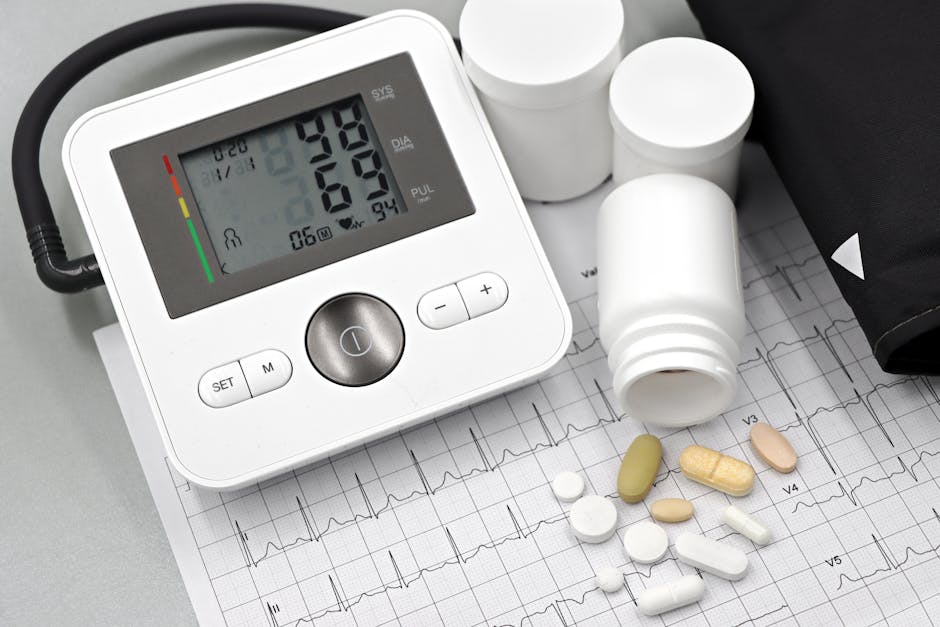Cholesterol Management: Medications You Can Trust
Did you know that nearly 1 in 3 adults in the U.S. has high cholesterol? This common condition can lead to serious health issues, including heart disease. But don’t worry! Managing your cholesterol is easier than you think, especially with the right medications. In this article, we’ll explore cholesterol management, focus on trusted medications, and give you the information you need to take charge of your health.
What Is Cholesterol and Why Does It Matter?

Cholesterol is a waxy substance found in your blood. Your body needs it to build healthy cells, but too much cholesterol can lead to heart problems. Think of cholesterol like the oil in your car. A little oil keeps the engine running smoothly, but too much can cause problems.
Cholesterol comes in two main types:
- LDL (Low-Density Lipoprotein): Often referred to as “bad” cholesterol. High levels can lead to plaque buildup in your arteries.
- HDL (High-Density Lipoprotein): Known as “good” cholesterol. It helps remove LDL cholesterol from your bloodstream.
Balancing these two types is crucial. When LDL levels rise, your risk for heart disease increases. That’s why monitoring and managing your cholesterol is essential.
How Can Medications Help Manage Cholesterol?

If lifestyle changes like diet and exercise aren’t enough, medications can help lower your cholesterol levels. Here are some common types of cholesterol-lowering medications you can trust:
What Are Statins?

Statins are the most widely prescribed medications for high cholesterol. They work by blocking a substance your body needs to make cholesterol. This helps lower LDL levels.
Common statins include:
- Atorvastatin (Lipitor)
- Simvastatin (Zocor)
- Rosuvastatin (Crestor)
Studies show that statins can reduce the risk of heart attack and stroke. According to the American Heart Association, they can lower LDL cholesterol by 20-60%.
What Are Other Types of Cholesterol Medications?

In addition to statins, a few other types of medications can help manage cholesterol:
- PCSK9 Inhibitors: These newer drugs, like Alirocumab (Praluent) and Evolocumab (Repatha), help the liver absorb more LDL cholesterol. They can lower LDL by about 50-60%!
- Niacin: This is a B vitamin that can help raise HDL (good) cholesterol while lowering LDL and triglycerides.
- Bile Acid Sequestrants: Medications like Cholestyramine and Colesevelam work by binding to bile acids in your gut, helping to lower cholesterol levels.
Each medication has different benefits and side effects. It’s essential to discuss these options with your doctor to find the best one for you.
How to Choose the Right Medication?
Choosing the right cholesterol medication can feel overwhelming. Heres a simple checklist to help you make an informed decision:
- Discuss your cholesterol levels with your doctor.
- Consider your overall health and any other medical conditions.
- Ask about potential side effects and how they might affect you.
- Think about lifestyle changes you can make alongside medication.
Your doctor can guide you through the options and help you find the best fit for your lifestyle and health needs.
What Are the Common Misconceptions About Cholesterol Medications?
Many people have misunderstandings about cholesterol medications. Lets clear up a few common myths:
- Myth 1: All cholesterol is bad. Fact: Your body needs cholesterol to function, but balance is key.
- Myth 2: Statins are only for older adults. Fact: People of all ages may need cholesterol management.
- Myth 3: Medications alone fix cholesterol issues. Fact: A healthy diet and exercise are still vital.
Understanding these misconceptions can help you make better choices about your health.
What Lifestyle Changes Can Help Manage Cholesterol?
Medications are one piece of the puzzle. Lifestyle changes play a huge role too. Here are some tips to help you lower cholesterol naturally:
- Eat heart-healthy foods: Focus on fruits, vegetables, whole grains, and lean proteins. Foods rich in omega-3 fatty acids, like salmon, are also beneficial.
- Exercise regularly: Aim for at least 150 minutes of moderate exercise each week. This can include walking, cycling, or swimming.
- Quit smoking: If you smoke, quitting can improve your HDL cholesterol level.
- Limit alcohol: Drink in moderation. Too much alcohol can increase cholesterol levels.
Making these changes can significantly improve your cholesterol levels and overall health.
How Can You Monitor Your Cholesterol Levels?
Regular check-ups with your doctor are essential for monitoring your cholesterol. They will perform a simple blood test called a lipid panel. This test measures your total cholesterol, LDL, HDL, and triglycerides.
It’s often recommended to have your cholesterol levels checked every 4-6 years, starting at age 20. However, if you have risk factors like diabetes or a family history of heart disease, you may need to test more frequently.
What Are Actionable Takeaways for Cholesterol Management?
Managing your cholesterol doesn’t have to be complicated. Here are some key takeaways:
- Understand your cholesterol numbers and what they mean.
- Discuss medication options with your healthcare provider.
- Make lifestyle changes to support your health.
- Stay consistent with check-ups to monitor your cholesterol.
By taking these steps, you empower yourself to control your cholesterol levels and improve your overall health.
Conclusion: Take Charge of Your Cholesterol!
Cholesterol management is crucial for your long-term health. With trusted medications, lifestyle changes, and regular monitoring, you can keep your cholesterol levels in check. Don’t hesitate to reach out to your healthcare provider to discuss your options and develop a plan that works for you.
Remember, you’re not alone on this journey. Take proactive steps today to improve your health and live a longer, happier life!
For more information on cholesterol management, check out the American Heart Association.



